Against Labor
THE WORKING CLASS IN AMERICAN HISTORY
Editorial Advisors
James R. Barrett, Julie Greene, William P. Jones,
Alice Kessler-Harris, and Nelson Lichtenstein
A list of books in the series appears at the end of this book.
Against Labor
How U.S. Employers Organized to Defeat Union Activism
Edited by
ROSEMARY FEURER AND CHAD PEARSON
University of Illinois Press
URBANA , CHICAGO , AND SPRINGFIELD
2017 by the Board of Trustees
of the University of Illinois
All rights reserved
1 2 3 4 5 C P 5 4 3 2 1
 This book is printed on acid-free paper.
This book is printed on acid-free paper.
Library of Congress Cataloging-in-Publication Data
Names: Feurer, Rosemary, editor. | Pearson, Chad, editor.
Title: Against labor : how U.S. employers organized to defeat union activism / edited by Rosemary Feurer and Chad Pearson.
Description: Urbana : University of Illinois Press, [2017] | Series: The working class in American history | Includes bibliographical references and index.
Identifiers: LCCN 2016037107 | ISBN 9780252040818 (hardcover : alk. paper) | ISBN 9780252082320 (pbk. : alk. paper) | ISBN 9780252099311 (e-book)
Subjects: LCSH : LaborUnited StatesHistory. | Industrial relationsUnited StatesHistory. | Labor unionsOrganizingUnited StatesHistory.
Classification: LCC HD 8072 . A 26 2017 | DDC 331.880973dc23 LC record available at https://lccn.loc.gov/2016037107
In memory of David Montgomery and Jerry Tucker
Contents
Rosemary Feurer and Chad Pearson
Elizabeth Esch and David Roediger
Chad Pearson
Thomas A. Klug
Robert H. Woodrum
Dolores E. Janiewski
Rosemary Feurer
Howard R. Stanger
Michael Dennis
Peter Rachleff
Acknowledgments
We have been working on this collection for a number of years and it gives us great pleasure to thank a number of individuals for helping us.
We would like to acknowledge the outstanding professionals at the University of Illinois Press: Brigette Brown, James Engelhardt, Geof Garvey, Laurie Matheson, and Tad Ringo. Laurie Matheson, now director of the press, has long championed our work, which we greatly appreciate.
Numerous scholars have also helped us by reading chapters and by talking about the history of employers. We thank the press for lining up some terrific readers: Howell John Harris, Immanuel Ness, and two blind reviewers. Our work is considerably stronger as a result of these critics thoughtful suggestions for improvements. Peter Rachleff also reviewed the work with valuable suggestions, including the need for a summary chapter. He ended up providing that at our invitation. Others have read parts of this collection, and we must thank Matthew Coulter, David Cullen, Keith Volanto, and Kyle Wilkison. In addition, we benefited from fruitful discussions with scholarly experts on the history of employers, capitalism, and labor: Theresa Case, Andrew Wender Cohen, Robert Justin Goldstein, Matthew Hild, Rebecca Hill, Nate Holdren, Vilja Hulden, Brian Kelly, Pamela Walker Laird, Mark Lause, Jim Lorence, Sam Mitrani, Bryan D. Palmer, Michael Pierce, Steve Rosswurm, Joan Sangster, and Michael Thompson.
Thank you to Virginia Hunt, Associate University Archivist for Collection Development and Records Management Services at Harvard University, for permission to cite portions of the Charles Eliot papers.
A joint-authored introduction and collection entails a matter of rounding up and encouraging each other while also agreeing to an interpretation, as well as sharing work. When we decided to take on this project, we already knew we agreed on a number of points, but this still entailed a long process of discussion and ended up probably causing us more work than if we had done it singly. It is gratifying to know that we have learned to work together and deepen our comradery and interpretive perspectives.
We thank our families for their love and support. Chad Pearson would like to recognize his loving wife and fellow historian, Sandra Mendiola, and his daughter, Lucia Pearson. Rosemary Feurer thanks her husband Dave Rathke, her two sons Joe and Ben, and Bens caregiver Lisa Daub, for all their sacrifices of time and devotion to the greater good.
Finally, we dedicate this collection to the memory of David Montgomery, a scholar who long ago recognized the need to integrate the study of employers and capitalism with the study of workers movements. We also dedicate it to Jerry Tucker, whose work of exposing employers collective actions in campaigns in the Midwest was an inspiration to both of us.
Introduction
Against Labor
ROSEMARY FEURER AND CHAD PEARSON
How have United States employers organized in order to maintain managerial control and stave off unionization? This collection focuses on the ways in which generations of employers have responded to expressions of working class activism, including strikes, boycotts, unionization campaigns, and political battles. At the end of the nineteenth century, employers and others referred to these activities as the labor problem. In most cases, they responded forcefully, creating frameworks that remain important today. The essays in this volume aim to deepen our understanding of antilabor activism, covering a spectrum of strategies while highlighting the roles played by numerous individuals and industries from the late nineteenth to the early twenty-first century.
These essays reveal that while employer activism took place in a global capitalist system, national and local context mattered. U.S. activist employers acted cohesively in local and national organizations, as well as politically and through legal avenues to achieve their goals: financial profits, managerial dominance, and societal legitimacy. They insisted that their efforts were deeply American and worthy of concerted collective strategies against workers movements. They organized and created ideological campaigns for managerial control that continue to animate the dialogue of the twenty-first century. Few issues have united the business community more consistently and deeply than antiunionism.
The need to historicize employer organizing is in harmony with the new interest in the history of capitalism and dovetails with the recent outpouring of scholarship on the rise of the Right. capitalism, and one cannot understand the resurgence of the Right in recent decades without coming to terms with the long history of employer activism. People, not faceless markets, shaped this story. History from above and history from below need to be understood together in order to fully appreciate the continual attempts to congeal employers power over workers. What those at the top of the hierarchy thought and did was always contextualized by the viability of a workers movement from below. Studying employers cannot be separated from the agency of workers, and examining both together illuminates the social history of capitalism.
Few historians have portrayed employers as actively constructing themselves as a class or as engaged in social movements, but we insist that is a useful framework. In order to wield power, employers learned that they needed to collectively organize local, state, and national networksand that they needed alliances, instruments, and organizations. In this context, they found common ground as they confronted challenges from organized labor in the courts, in politics, in the area of public relations, and at the point of production. Advocating free-market ideology and opposing expressions of working-class collectivism, they sought to exert power by using the state to create legal and institutional parameters that limited workers options. Many recognized that their ability to recruit, organize, and deploy labor required fighting workers collective action or taming their demands. In many cases, they were counterrevolutionaries reacting to crises of power; in others, they simply acted opportunistically and proactively to establish and embed their antiunion sentiments in the U.S. system. They sought to build a counterculture to working-class community-based mobilizations, and their collective work strategically activated the state on their behalf. In each of the essays in this collection, workers actions played critical roles in how employers and capitalists structured themselves as a class.

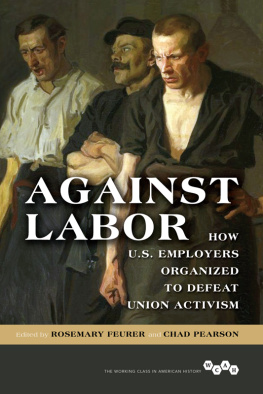
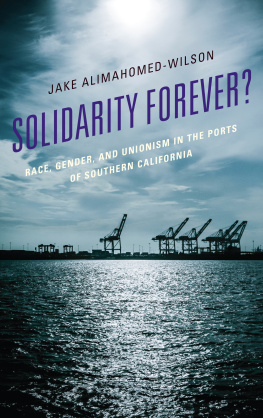
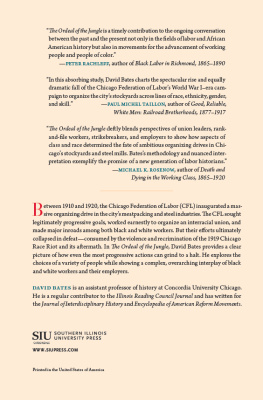
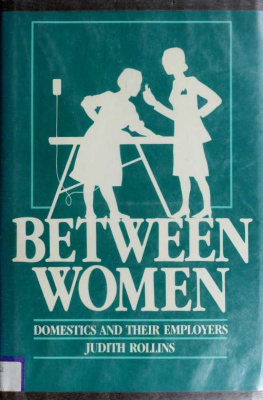
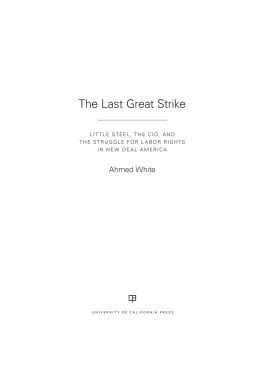

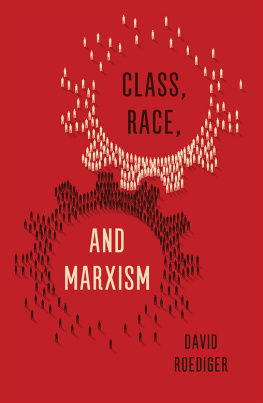
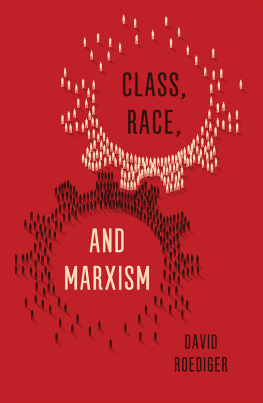
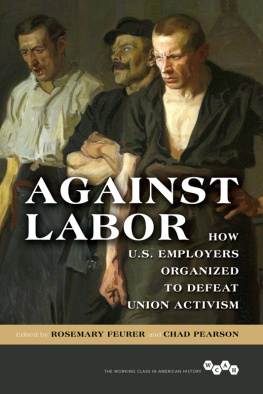

 This book is printed on acid-free paper.
This book is printed on acid-free paper.